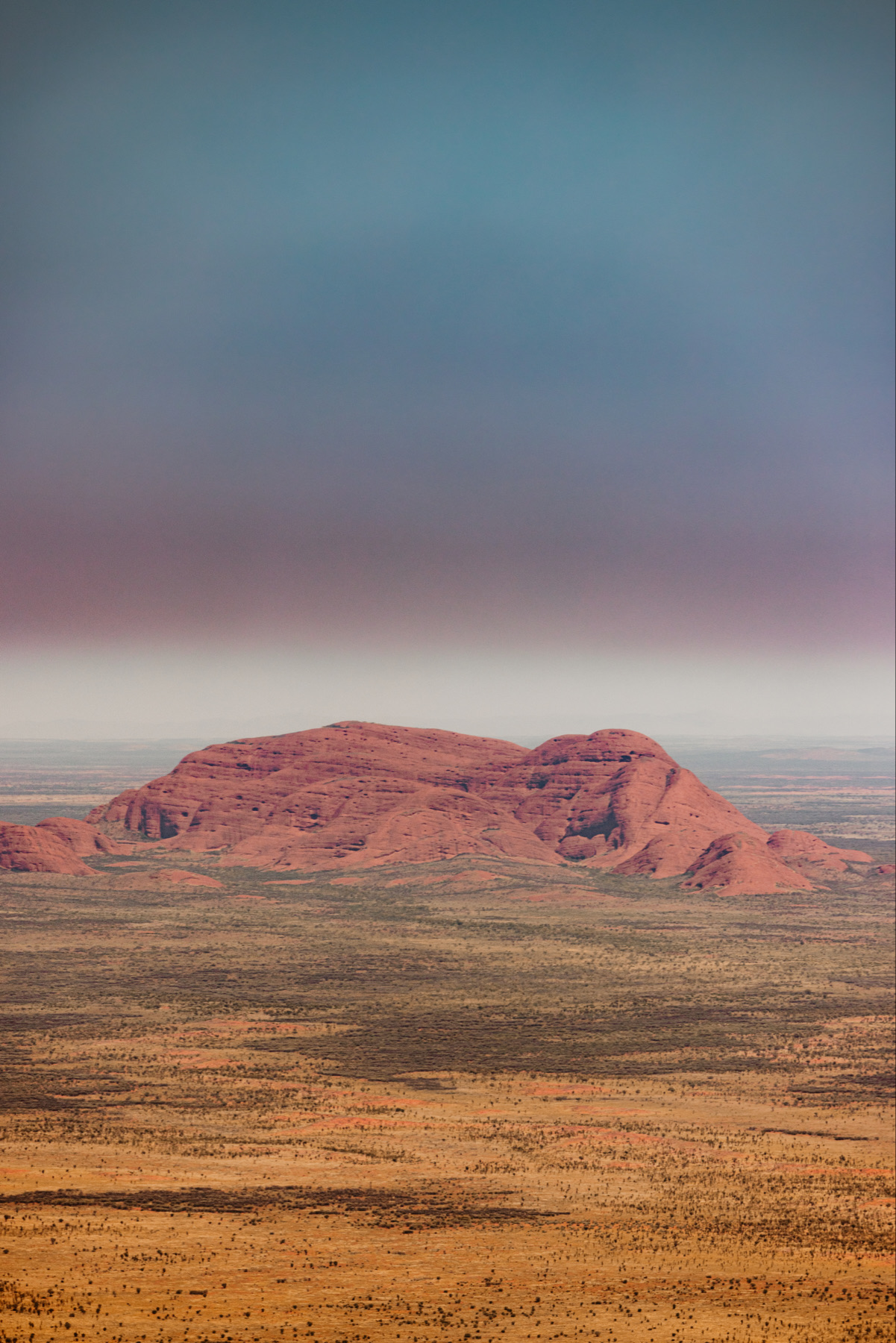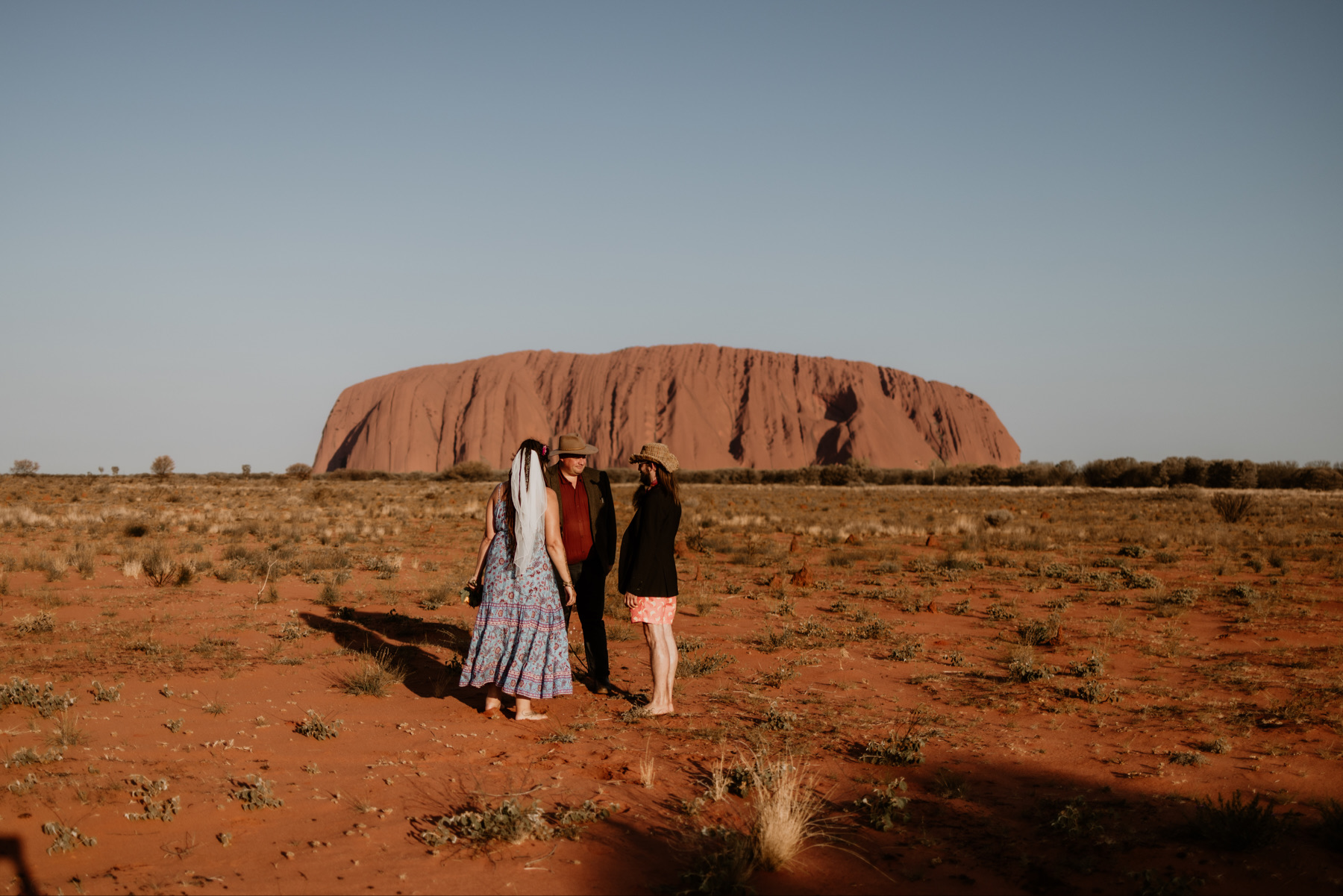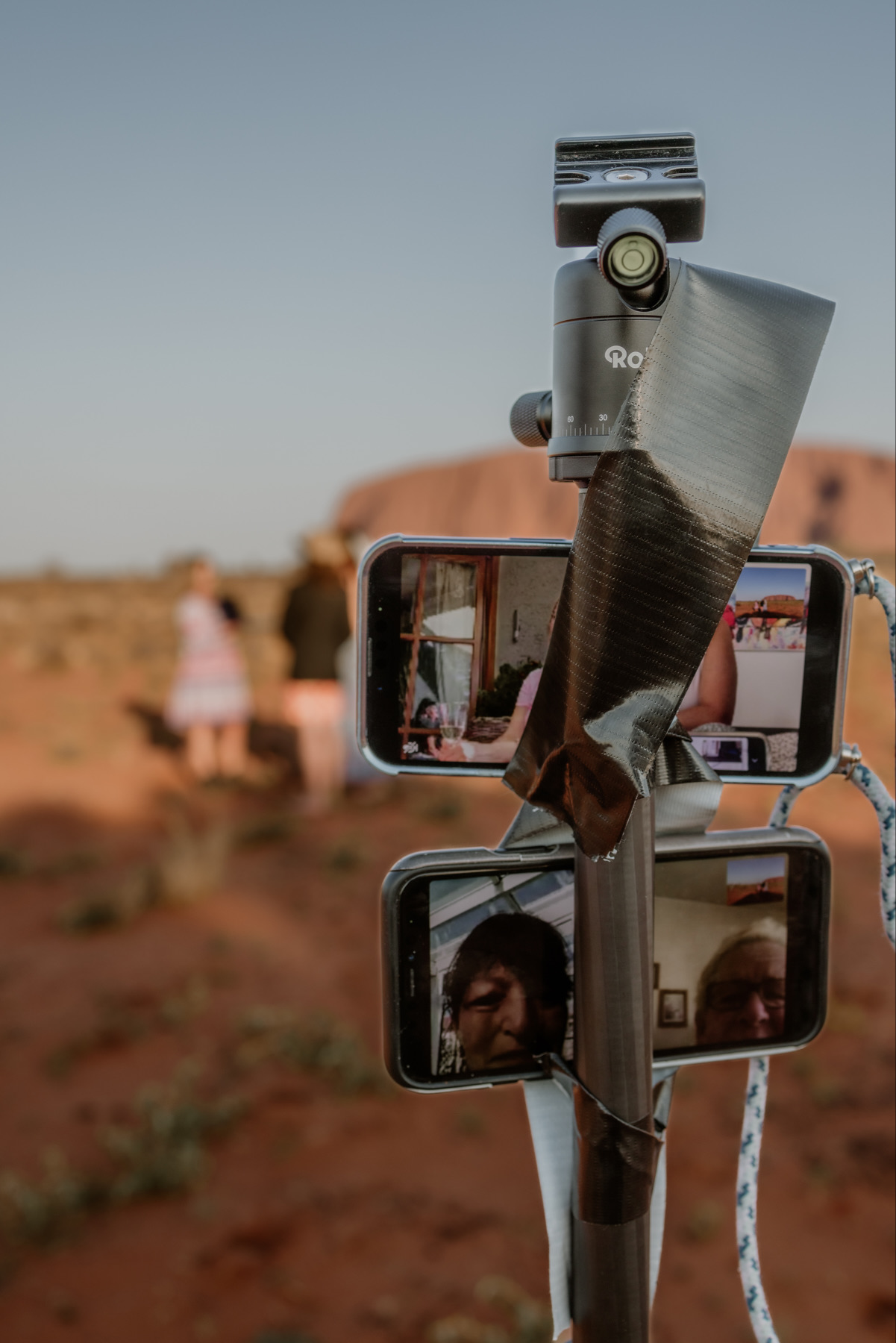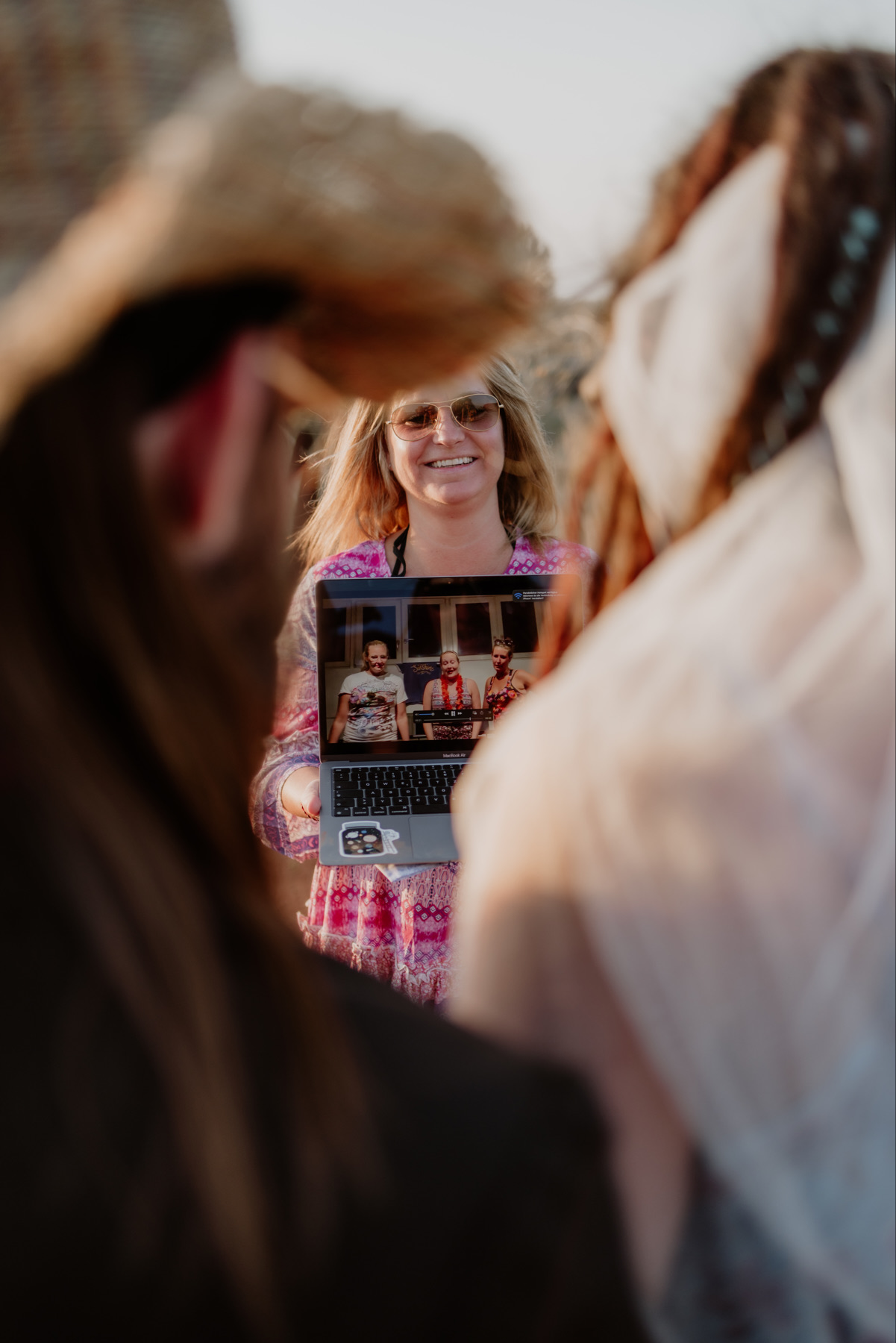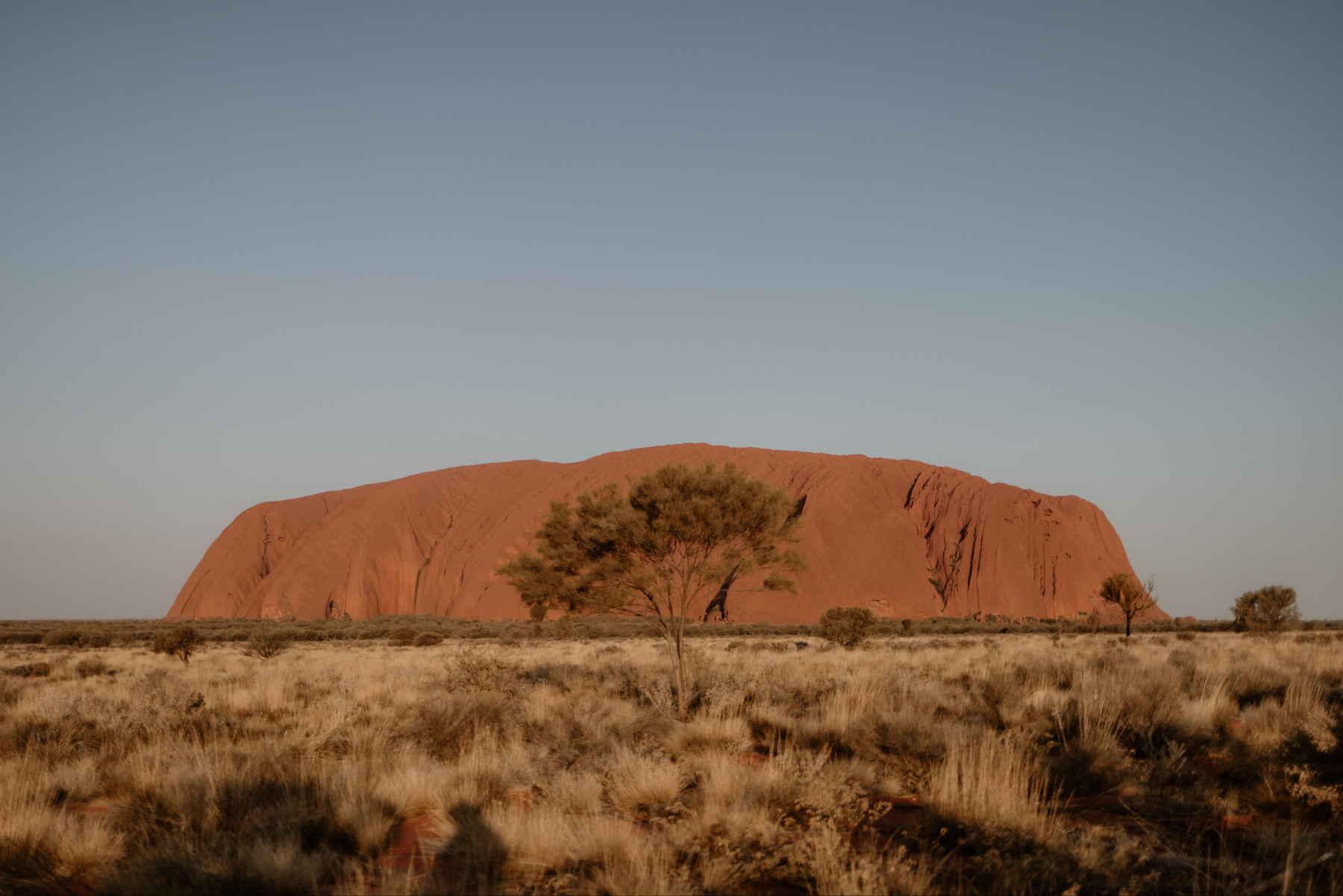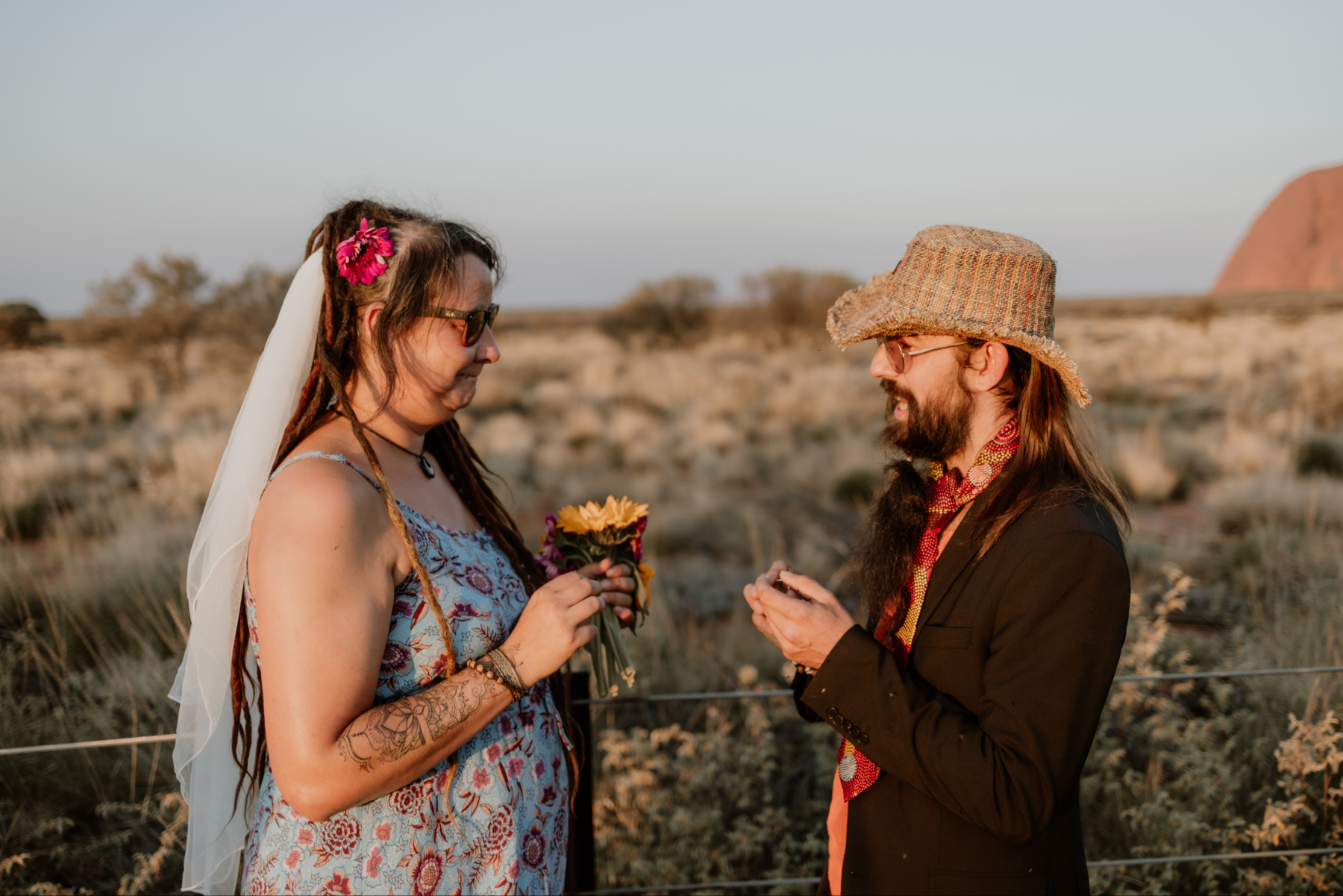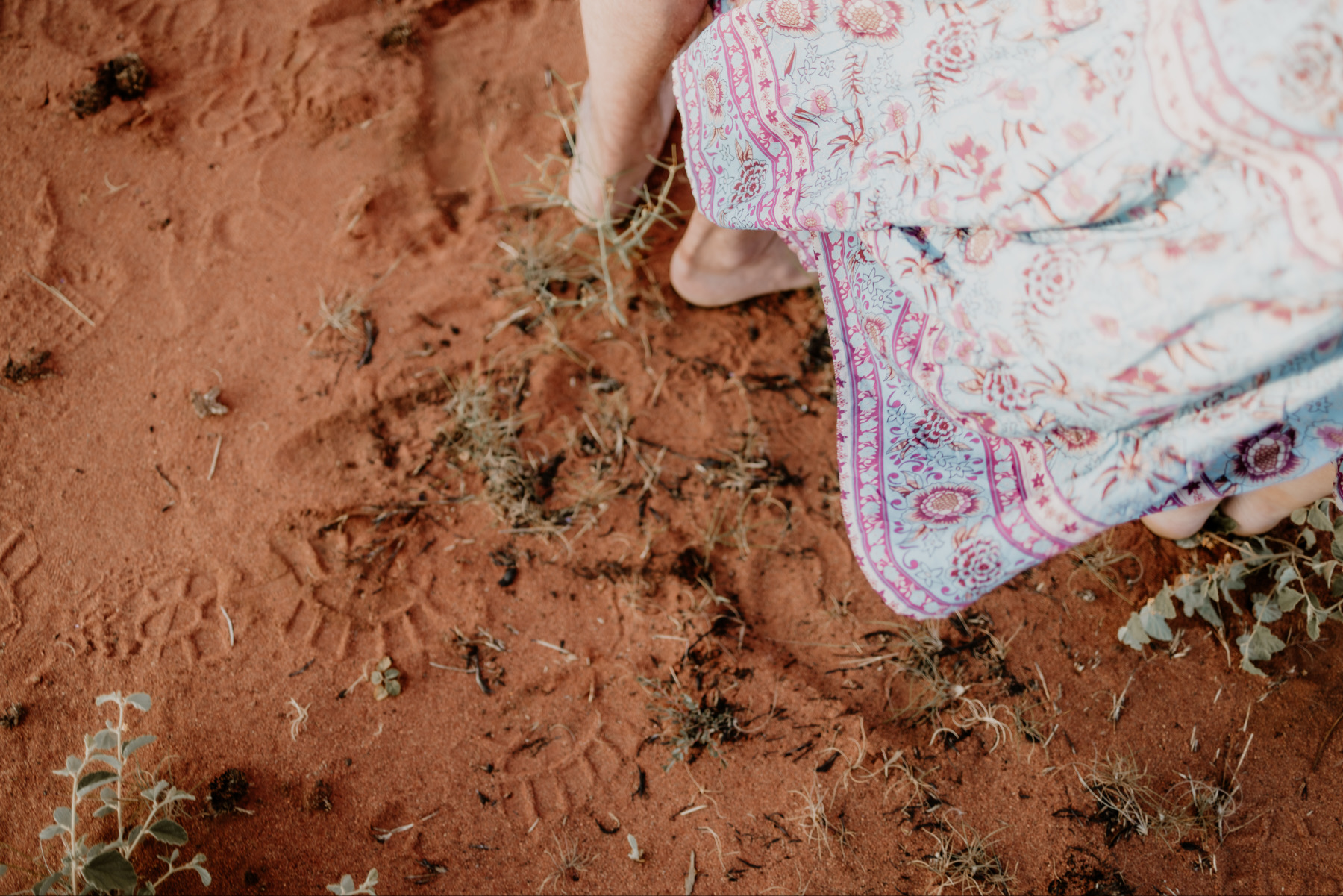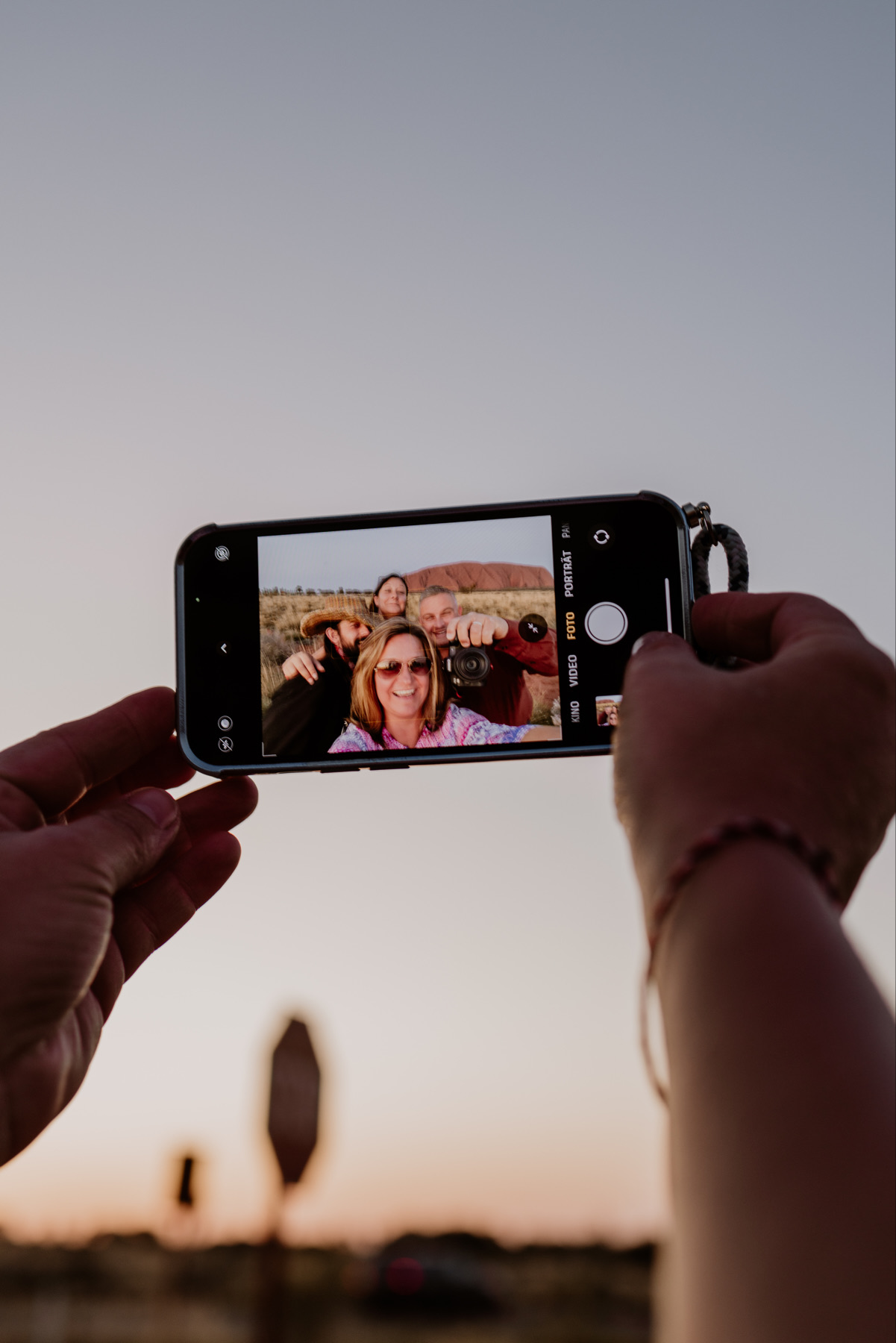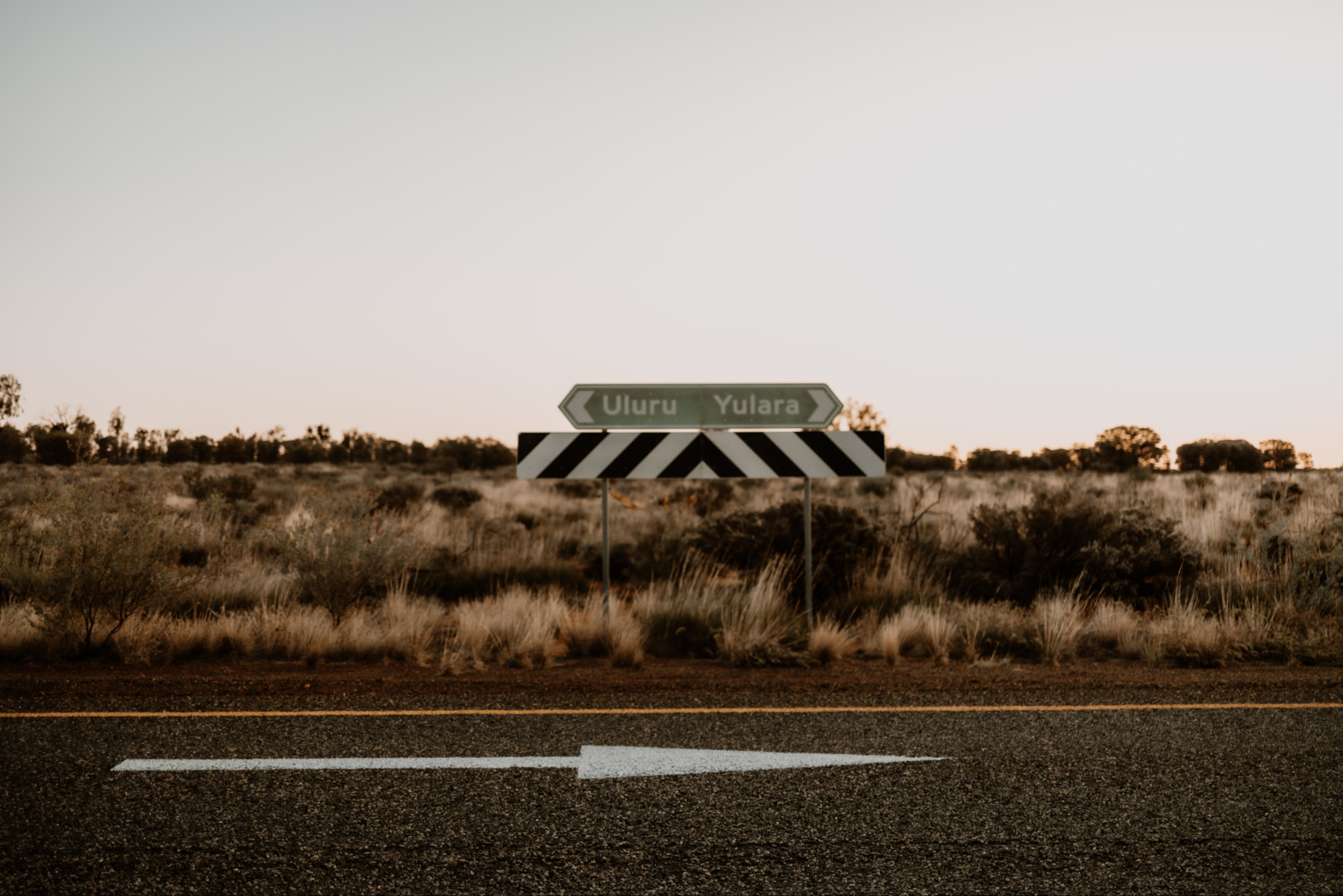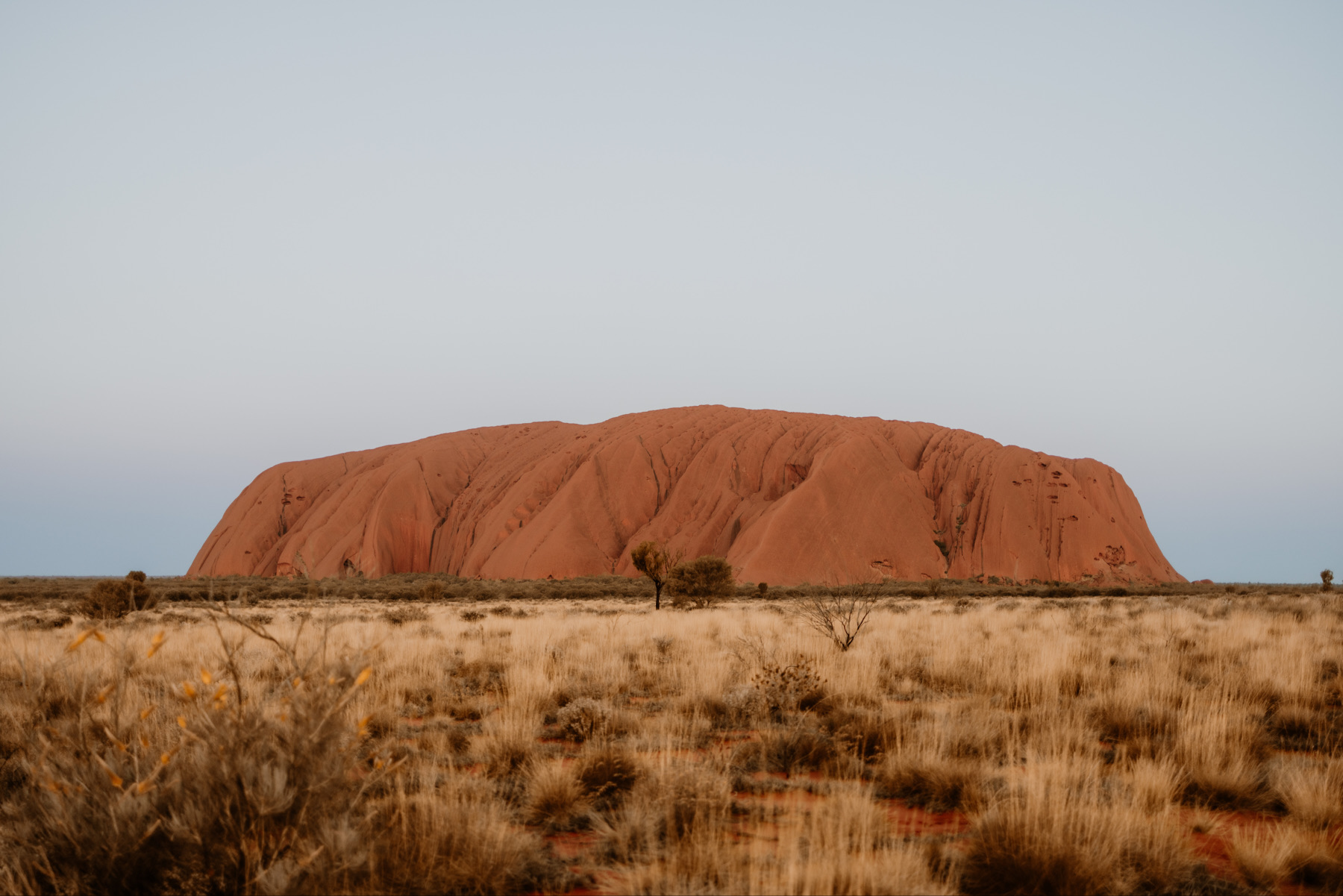
Uluru is such an icon. Its simple beautiful existence is one of my earliest memories, reading about it in encyclopaedias or National Geographic and Australian Geographic magazines. Seeing it in advertisements and in movies, Oprah and Young Einstein, but back then everyone called it Ayers Rock. Today we call it what it always has been: Uluru.
Uluru has had a complicated 200-odd years of history. Before Europeans visited Australia for the first time, the red centre was just plodding along quite well as a special place for the Aṉangu people and neighbouring Aboriginal nations.
But a few years ago everything changed. In the 1870s some white blokes sighted Uluru. 1936 saw the first tourists arrive, 12 years later some tracks that would become roads were laid, and in 1959 Eddie Connellan built an airstrip. His name’s important later on in this story.
I’ve been lucky to witness Uluru’s glory twice now and the main difference since the last time was that in 2016 people were climbing the rock, and now in 2023 every cafe, restaurant, and bar was alive with talk about Uluru from a political point of view. Some talking about the Voice to Parliament soon going to a referendum, some talking about climbing it or why we can’t now, others talking about everything you can or can not do in the area - like drinking and taking photos in certain areas, and most were talking about how the extraordinarily high prices for everything was married to a general lack of enthusiasm from staff for visitors to be present.
Most of my visit this time - aside from creating the marriage ceremony I was hired to create - was spent thinking about a comedic video I’ve seen on social media a few times recently. The premise of the video is that before a theatre performance an MC offers an acknowledgment of country before the protagonist, an audience member, asks if everyone should leave. She says “if we’re on someone else’s land, we should leave, shouldn’t we?” going further to ask if proceeds from ticket sales were going to the owners. It’s a joke at the expense of what can often seem like token or hollow effort to just be better about how Australia, the whole island and surrounding islands, were inhabited by intelligent, valid, interesting humans well before Europeans turned up and started naming things and claiming areas. Not just one group of people called Australia home, hundreds of different Aboriginal nations did.
For a few years the people new to the land were pretty bloody horrible to the locals, genocide-horrible, and in recent years current generations of leaders across the spectrum of Australian society have been throwing around the hot potato of how to deal with this generational trauma.
I was born on the Gold Coast, gifted an Australian citizenship, freedom to roam this entire country (unless there’s some pandemic apparently) and yet thrust into a political debate about being welcomed to a land, land ownership, land use, and land respect.
I’m voting yes for a voice to parliament, I believe it’s the right thing to do but I don’t think it’s the only thing we should do, there’s a far bigger elephant in the room.
As native titles are transferred, and places like Uluru fall more into line with the wishes of the owners, what should happen on that land? Should we leave?
1993 saw the Northern Territory government acknowledge the local name of the rock in a dual naming situation, eight years after the land was returned to the original owners, but still today the airport and the resort keep the names Ayers Rock. As you enter the airport you’ll see the name of the original airstrip builder on the building (Connellan) but to be sure not to confuse the tourists the airport you book a flight to and the motel you book a room at are the right ones, they carry the name Ayers Rock. Obviously they’re keen on keeping that revenue, and I’m keen to keep giving it.
But, customer service at most of the stores and businesses is by First National people and despite paying top-shelf prices I can’t help but feel that they’d be happier if we weren’t there. After all, we were on their land and after we set up shop there (and put chains up the rock) we gave it back to them as long as we could stay.
I’m invited to Ayers Rock this week in my capacity as a wedding celebrant by a German couple who want to commit to marriage in an iconic, unforgettable, location. They plan to apply for residency and wanted to have the most Aussie wedding ever: at Uluru. (Photos below)
The location they choose for the ceremony seemed to be ok in my humble Australian citizen opinion. The lines on the side of the road were white (not yellow “no stopping” lines), and the land off the road was unfenced. So, we started exchanging vows about twenty metres off the road and quite soon after an unhappy first Nations lady, driving a Toyota land cruiser and flashing a card that meant she could tell us what to do, told us what to do and to move on. We did respectfully, to the sunset viewing area that she suggested.
But the overwhelming experience of Uluru for my German friends and others we talked to, second to the rock’s overwhelming beauty, is that the rest of us aren’t really all that welcome - but our money is.
Which is a confusing position to leave all of us, including the First Nations people, in.
I have a proposal for all of us to consider. Let’s go all in. If we’re supposed to leave, please let me know. If we’re not supposed to be in Uluru please let Qantas and the motels know.
But if we’re going to stay, let’s work out how we can do that in a way where I don’t feel like I’ve committed genocide by asking for a $30 burger that the menu said I could have if I ordered it.
And if we’ll stay, let’s right our wrongs as a community, as a nation, as invaders, as citizens, and as residents. This middle ground was and is necessary, like birthing pains it has been taking us somewhere beautiful, I just don’t think anyone with the power to decide knows where we are going.
My family came to Australia in 1903, I sure hope that by 2103 the society my grandchildren live in will be one of unity and joy, not constant tension and racism.
So let’s figure out where we’re going and let’s go there.
